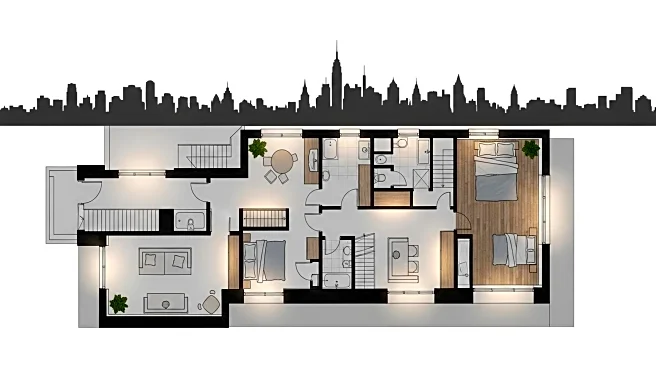What is the story about?
What's Happening?
New York City homeowners are now able to apply for permits to construct basement, attic, and backyard cottage apartments, known as ancillary dwelling units (ADUs), on their properties. This initiative is part of Mayor Eric Adams' City of Yes housing plan, which aims to increase housing availability across the city. The ADU For You program provides guidance and resources, including design assistance, to homeowners interested in building these units. The zoning changes approved under the City of Yes initiative facilitate the creation of legal ADUs, which must adhere to specific regulations such as size limits and location restrictions. The program is expected to create more housing opportunities and make it more affordable for homeowners to build ADUs.
Why It's Important?
The introduction of ADUs in New York City is a significant step towards addressing the city's housing crisis. By allowing homeowners to build additional units on their properties, the initiative aims to increase the availability of affordable housing options. This could benefit renters by providing more choices and potentially stabilizing rental prices. However, the impact may be limited due to restrictions that prevent many properties from qualifying for ADU construction. Despite these limitations, the program represents a proactive approach to expanding housing options in a densely populated urban area.
What's Next?
The city plans to announce rules for legalizing pre-existing basement and cellar apartments that are currently occupied unlawfully. The ADU For You program will continue to offer design and construction resources to homeowners, with the involvement of organizations like Habitat for Humanity and KM Associates. As the program progresses, it will be important to monitor its effectiveness in increasing housing availability and affordability in New York City.
Beyond the Headlines
The ADU initiative raises questions about urban planning and the balance between preserving neighborhood character and addressing housing shortages. The program's success will depend on its ability to navigate these challenges while providing safe and regulated housing options. Additionally, the initiative could inspire similar programs in other cities facing housing crises.


















